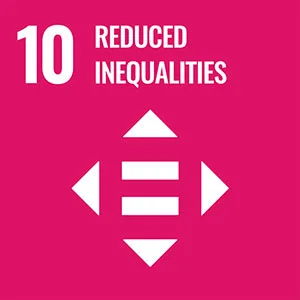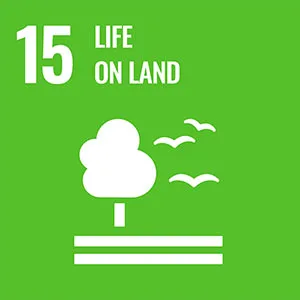MSc Sustainable Urban Planning and Design
The master's programme in Sustainable Urban Planning and Design focuses on the correlation between the built environment and social, economic and institutional forces. Students gain a profound and broad understanding of the multiple factors in sustainable urban development. Project work provides students with strong practical skills. Graduates have the expertise to adapt planning and design practices to the environmental conditions and societal needs of the future.

Sustainable Urban Planning and Design at KTH
The programme brings together students of architecture, planning, civil engineering and natural and social sciences. You are equipped with theoretical knowledge and professional tools that position you as critical links, joining multiple perspectives in sustainable planning and design processes relevant in Sweden and worldwide. Coursework includes substantial time spent in studios and on projects that train you in practical skills and give you a deep understanding of planning and design practice.
The programme offers three profiles pursued through recommended course combinations, representing different professional competencies in sustainable urban planning and design. You can also broaden your knowledge by making your own combinations of courses. During the programme, students interact across the specialisations in courses and projects that foster a mutual exchange of knowledge and ideas.
Profiles
- Urban Planning and Design focuses on spatial and aesthetic development aspects of urban form and public spaces.
- Urban and Regional Planning addresses strategic development and land use planning across cities and regions, integrating social, economic, and environmental considerations.
- Environment and Planning centres on sustainability assessments, policy analysis, and integrating environmental science into urban decision-making.
All students take part in the introduction course that presents the subject and deepens their understanding of how planning and design practices can enhance sustainable urban development. After this course, you can choose one of the specialisations with recommended courses addressing different methodological, theoretical and practical aspects of urban design and planning. However, you can also choose to combine of courses from different specialisations, subject to eligibility. The spring semester includes a mandatory course to develop students' research skills within the programme's scope.
The third semester deepens the students' specialisation by integrating accumulated knowledge into applied project work. Projects are supported by several core courses highlighting conceptual and analytical approaches. The programme concludes with a degree project carried out in the fourth semester. The degree project allows you to investigate a problem in-depth under the supervision of experienced practitioners and researchers.
Throughout the programme, invited lecturers from local/regional authorities, consultancies, and other private actors will give students insights into the contemporary practice of planning and design in Sweden and abroad. In studios and project assignments, you’ll engage with urban development initiatives in the Stockholm region, such as planning for new districts around newly built metro stations, integrating nature-based solutions to address climate change impacts, and transforming Stockholm Royal Seaport into a climate-positive district. The skills and perspectives gained in this programme, prepare graduates to tackle emerging urban sustainability challenges in cities worldwide, from Europe to rapidly urbanising regions in Asia, Africa, and Latin America.
This is a two-year programme (120 ECTS credits) in English. Graduates are awarded the degree of Master of Science. The programme is mainly offered at the KTH Campus in Stockholm by the School of Architecture and Built Environment (at KTH).
Courses in the programme
The courses in the programme cover topics such as urban planning, social sustainability, regional development, public space, urban form, green cities, community participation, sustainable transport, urbanism, resilience.
Courses in the master's programme in Sustainable Urban Planning and Design
Future and career
The programme prepares students as professionals in a growing and meaningful field, building a thorough understanding of the planning and design process and aesthetic, social, environmental, economic and institutional factors that contribute to sustainable urban development. After graduation, you are ready to take on roles such as city architect, urban planner, project leader, sustainability consultant, architect, traffic planner, urban designer, and environmental planner, working in public organisations, private companies, research institutes and NGOs. Examples of public organisations are municipalities responsible for urban planning and development, regional development authorities, environmental protection authorities and national transport administrations, which employ nearly half of the graduates. The private sector, which includes architectural, planning and policy consultancy firms and project developers, employs almost half of the graduates. The remaining 5–10 per cent go on to doctoral studies at KTH and abroad or work in NGOs. Graduates have gone on to PhD studies, among others, at University of Antwerp, Stockholm University, National University of Athens, University of Bern and Swansea University.
Sustainable development
Graduates from KTH have the knowledge and tools for moving society in a more sustainable direction, as sustainable development is an integral part of all programmes. The three key sustainable development goals addressed by the master's programme in Sustainable Urban Planning and Design are:



Equity and equality are core qualities of sustainable societies, involving, for example, equal access to housing, public services, and transport systems. Courses such as Introduction to Urban Economics and Planning Theory, and Urban Governance analyse the causes and consequences of inequality. In project courses, students learn to address equality issues in urban planning and design.
Cities and communities are the objects of study in the programme, with sustainability as the goal. You will learn tools like GIS, scenario planning, strategic environmental assessments, and participatory methods for involving citizens in urban planning. In addition, you will be working with concepts such as resilience, non-human centred design and active mobility that will enable you to address local sustainability issues and develop strategies and solutions that contribute to sustainable cities and communities.
Critical thinking, exploration, and experimentation are essential to developing innovative solutions that minimize the environmental impact of urban development. Through exercises and lectures, you will be encouraged to integrate new knowledge and technologies, and to devise strategies that both reduce climate impacts and enhance ecosystem services while promoting the sustainable management of natural resources. In addition, you will gain theoretical, practical, and methodological knowledge that will enable you to deal with the yet-unknown and plan for cities for the future.
Faculty and research
The programme spans disciplines within an increasingly important field within the KTH School of Architecture and the Built Environment. The school provides multi-disciplinary research and teaching, an environment ranked 42in the world in the latest QS World University Rankings by Subject (Architecture and Built Environment).
The programme benefits from interdepartmental expertise in engineering, architecture, natural and social science at the Department for Environment and Planning, the School of Architecture, and the Department for Sustainable Development, Environmental Science and Technology.







